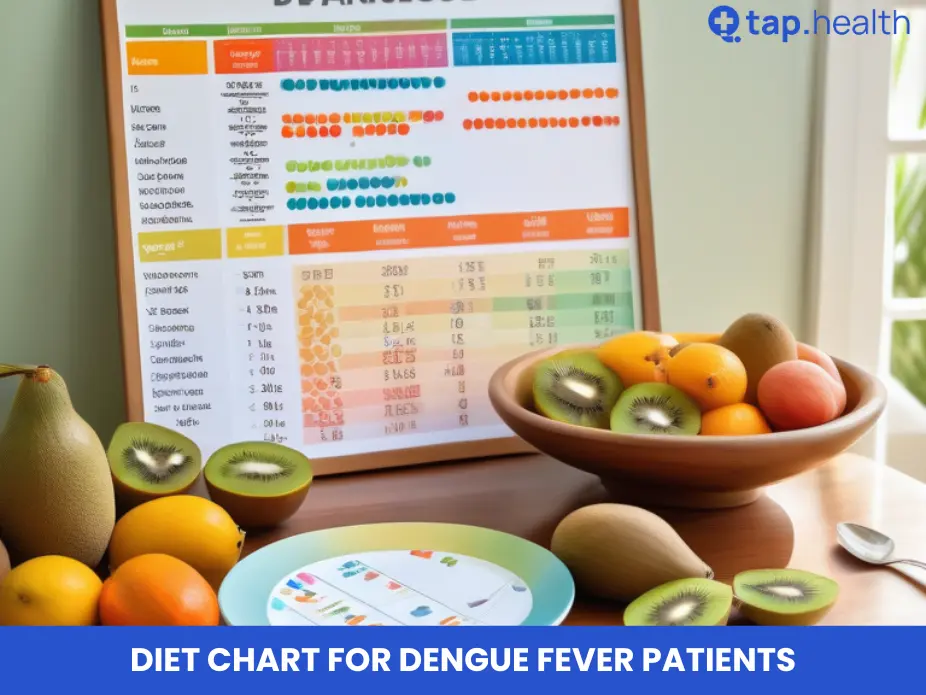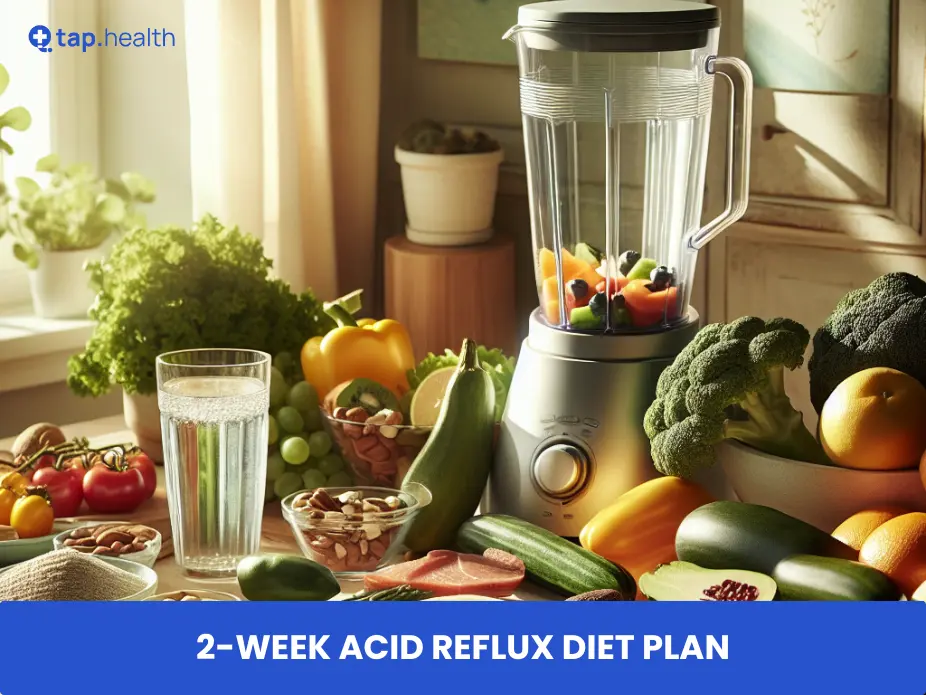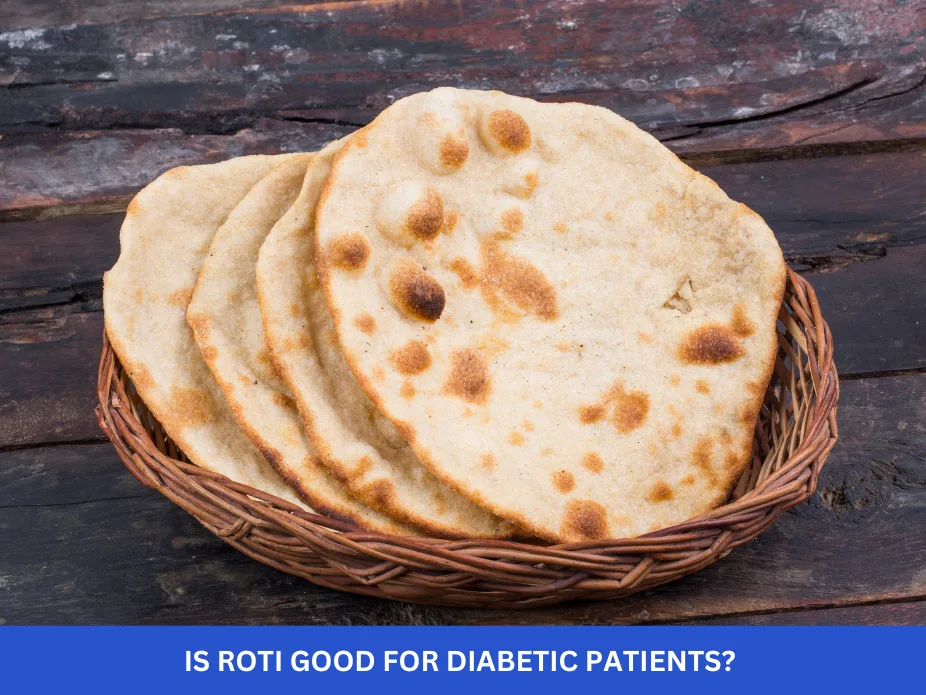Dengue fever, a mosquito-borne viral infection, can be debilitating, but a well-planned diet plays a pivotal role in aiding recovery. This blog provides a concise, nutrient-focused diet chart for dengue patients, emphasizing hydration, immunity-boosting foods, and platelet-enhancing meals. By understanding the intent of the original content, we’ve restructured it into a short, question-answer format while incorporating.
What is Dengue Fever and Why Does Diet Matter?
Dengue fever is caused by the Aedes mosquito, carrying one of four dengue viruses (DENV-1 to DENV-4). It’s prevalent in tropical regions and causes symptoms like high fever, severe headaches, muscle pain, nausea, and rashes. If not managed properly, it can become life-threatening due to low platelet counts and dehydration. A proper diet is essential for:
- Boosting Immunity: To help the body fight the virus.
- Rehydration: To counter fluid loss caused by fever and vomiting.
- Increasing Platelet Count: To support recovery from dengue’s impact on blood cells.
- Easing Digestion: To avoid burdening the weakened digestive system.
This diet chart ensures patients receive nutrient-rich, easily digestible foods to support recovery.
What Foods Should Dengue Patients Eat?
A dengue recovery diet should focus on foods that are easy to digest, hydrating, and rich in vitamins and minerals. Here are the top recommendations:
1. Hydration-Focused Foods
- Coconut Water: Rich in electrolytes, it prevents dehydration.
- Fresh Juices: Orange, pomegranate, and black grape juices provide antioxidants and hydration.
- Oral Rehydration Solution (ORS): Essential for severe cases to restore electrolyte balance.
2. Platelet-Boosting Foods
- Papaya and Papaya Leaf Juice: Known for increasing platelet count naturally.
- Pomegranate: High in iron and antioxidants, supports blood cell production.
- Green Leafy Vegetables: Spinach and kale are folate-rich, aiding platelet formation.
3. Vitamin C-Rich Foods
- Citrus Fruits: Oranges, lemons, and amla enhance immunity and antibody production.
- Kiwi and Guava: Packed with vitamins to support recovery.
4. Easily Digestible Foods
- Boiled Foods: Vegetables, chicken, and eggs provide nutrients without straining digestion.
- Porridge and Soups: Light and comforting, they maintain energy levels.
- Herbal Teas: Ginger or peppermint teas soothe symptoms and hydrate.
What Foods Should Dengue Patients Avoid?
Certain foods can worsen symptoms or hinder recovery. Avoid:
- Spicy and Oily Foods: These irritate the stomach and worsen nausea.
- Processed and Junk Foods: High in saturated fats, they’re hard to digest.
- Sugary and Aerated Drinks: These offer no nutritional value and may spike blood sugar.
- Raw Vegetables: They can be tough to digest and may carry bacteria.
How Does a Dengue Diet Support Recovery?
A balanced diet supports dengue recovery by:
- Replenishing Nutrients: Dengue depletes essential vitamins and minerals, which a nutrient-rich diet restores.
- Boosting Platelet Count: Foods like papaya and pomegranate help increase platelets, critical for preventing complications.
- Enhancing Immunity: Vitamin C and antioxidant-rich foods strengthen the immune system to fight the virus.
- Preventing Dehydration: Hydrating foods and fluids maintain electrolyte balance, crucial for recovery.
7-Day Diet Chart for Dengue Patients
Below is a concise, daily diet plan tailored for dengue patients, focusing on hydration, immunity, and platelet support. Each meal is designed to be light, nutrient-dense, and easy to digest.
Sunday
- Breakfast (8:00 AM): Milk with cornflakes (1 cup)
- Mid-Meal (11:00 AM): Coconut water (1 cup) + 1 apple
- Lunch (2:00 PM): Parboiled rice (½ cup) + chicken stew (½ cup, 2 pieces)
- Evening (4:00 PM): Vegetable soup (½ cup)
- Dinner (8:00 PM): Boiled rice (⅓ cup) + mashed potato (2) + ghee (1 tsp) + warm rasgolla (2)
Monday
- Breakfast (8:00 AM): Chapati (1.5) soaked in milk (½ cup) with sugar
- Mid-Meal (11:00 AM): Coconut water (1 cup) + 1 ripe banana
- Lunch (2:00 PM): Parboiled rice (½ cup) + fish stew (½ cup, 1 piece)
- Evening (4:00 PM): Spinach soup (½ cup)
- Dinner (8:00 PM): Boiled rice (⅓ cup) + carrot-potato curry (½ cup) + warm rasgolla (2)
Tuesday
- Breakfast (8:00 AM): Chapati (2) + masoor dal soup (½ cup)
- Mid-Meal (11:00 AM): Coconut water (1 cup) + grapes (½ cup)
- Lunch (2:00 PM): Yellow matar dal curry (½ cup) + fresh lime (¼)
- Evening (4:00 PM): Carrot soup (½ cup)
- Dinner (8:00 PM): Mashed boiled rice (⅓ cup) + milk (¼ cup) + jaggery (3 tsp)
Wednesday
- Breakfast (8:00 AM): Rice flake pulav (1 cup) with peas and carrots
- Mid-Meal (11:00 AM): Coconut water (1 cup) + 1 orange
- Lunch (2:00 PM): Mashed potato (2) + boiled rice (½ cup) + boiled egg (1) + ghee (2 tsp)
- Evening (4:00 PM): Chicken soup (⅓ cup)
- Dinner (8:00 PM): Boiled rice (⅓ cup) + fish stew (⅓ cup, 1 piece) + warm rasgolla (2)
Thursday
- Breakfast (8:00 AM): Chapati (2) + moong dal soup (½ cup)
- Mid-Meal (11:00 AM): Coconut water (1 cup) + pomegranate (½ cup)
- Lunch (2:00 PM): Parboiled rice (½ cup) + chicken stew (½ cup, 2 pieces)
- Evening (4:00 PM): Mushroom soup (½ cup)
- Dinner (8:00 PM): Boiled rice (¼ cup) + boiled egg (1) + ghee (1 tsp) + warm rasgolla (2)
Friday
- Breakfast (8:00 AM): Custard (½ cup) + toast (2 slices)
- Mid-Meal (11:00 AM): Coconut water (1 cup) + 2 chikus
- Lunch (2:00 PM): Parboiled rice (½ cup) + chicken stew (½ cup, 2 pieces)
- Evening (4:00 PM): Vegetable soup (½ cup)
- Dinner (8:00 PM): Boiled rice (¼ cup) + potato-tomato curry (⅓ cup) + warm rasgolla (2)
Saturday
- Breakfast (8:00 AM): Mashed potato + chapati with butter (2 tsp)
- Mid-Meal (11:00 AM): Coconut water (1 cup) + 2 small bananas
- Lunch (2:00 PM): Rice pulav (1 cup) with green peas and carrots
- Evening (4:00 PM): Vegetable soup (½ cup)
- Dinner (8:00 PM): Boiled rice (¼ cup) + lentil curry (½ cup) + warm rasgolla (2)
FAQs About Dengue Fever Diet
1. What are the best fruits for dengue patients?
Fruits like papaya, pomegranate, kiwi, oranges, and bananas are ideal. They’re rich in vitamins, antioxidants, and help increase platelet count while being easy to digest.
2. How can I increase platelet count naturally during dengue?
Incorporate papaya (fruit and leaf juice), pomegranate, spinach, and kiwi into your diet. These foods are rich in folate, iron, and vitamins that support platelet production.
3. Why is hydration important for dengue recovery?
Dengue causes fluid loss through fever and vomiting. Coconut water, ORS, and fresh juices restore electrolytes and prevent dehydration, aiding recovery.
4. Can spicy foods worsen dengue symptoms?
Yes, spicy and oily foods can irritate the stomach, worsen nausea, and hinder digestion, slowing down the recovery process.
5. How does vitamin C help in dengue recovery?
Vitamin C-rich foods like oranges, lemons, and amla boost immunity by increasing antibody production, helping the body fight the dengue virus effectively.
Additional Tips for Dengue Recovery
- Monitor Symptoms: Regular blood tests are crucial to track platelet count and ensure timely medical intervention.
- Rest Adequately: Combine the diet with sufficient rest to allow the body to heal.
- Consult a Doctor: Always follow medical advice alongside dietary changes, especially in severe cases.
- Incorporate Omega-3: Foods like cod liver oil or flaxseed oil can reduce inflammation and support immunity.
Conclusion
A well-structured diet chart for dengue fever patients is a cornerstone of recovery. By focusing on hydration, immunity-boosting foods, and platelet-enhancing meals, patients can manage symptoms effectively and regain strength. This 7-day diet plan, rich in fruits, vegetables, and light proteins, ensures the body gets the nutrients it needs without overloading the digestive system. Always consult a healthcare professional to tailor the diet to individual needs and monitor recovery progress.



